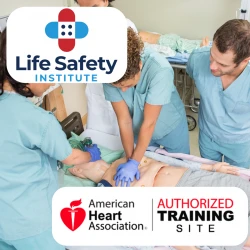Introduction
The Emergency Medical Technician (EMT) role is an essential component of the healthcare system, providing vital pre-hospital care to patients. In New Hampshire, EMTs are fortunate to have many diverse career paths available. This article will explore various possibilities for EMTs, including working as a firefighter, in hospitals, with ambulance services, and much more.
Section 1: Firefighter
A. Introduction to the Role
EMTs have a natural pathway to becoming firefighters, responding to both medical emergencies and fire incidents. In New Hampshire, many fire departments require both EMT and Firefighter certifications.
B. Responsibilities and Duties
Firefighters not only respond to emergency calls but are also frequently involved in public education initiatives. Teaching fire safety and prevention is a key component of the role.
C. Steps to Become a Firefighter
- Certification as an Emergency Medical Technician: This is often the starting point for many aspiring firefighters.
- CPAT Test: Passing the Candidate Physical Ability Test (CPAT) is crucial to show you have the physical skills required for the job.
- Applying and Interviewing: Application to local fire departments or EMS agencies, followed by interviews.
- Exams, Background Checks, and Drug Screenings: Some positions may require written exams, background checks, and drug screenings.
- Physical Fitness Tests: These include challenges like climbing ladders or carrying equipment up flights of stairs while wearing full gear.
- Swearing-In: Finally, being sworn in as a firefighter.
For a detailed guide on becoming a firefighter in New Hampshire, you can visit here.
Section 2: Hospital or Medical Office
A. Introduction to the Role
EMTs can find fulfilling careers in hospitals or medical offices where they provide patient care and carry out assessments.
B. Responsibilities and Duties
- Providing Patient Care: EMTs in hospitals often assist with medical procedures, administer medications, and monitor patients.
- Assessment Skills: Assessing patients' medical conditions and determining the appropriate care is a vital aspect of this role.
C. Opportunities for Growth
The hospital environment provides opportunities for continuous learning and growth in various medical specialties.
Section 3: Ambulance Service / EMS Agency
A. Introduction to the Role
Working with ambulance services or EMS agencies offers a dynamic work environment that is both challenging and rewarding.
B. Responsibilities and Duties
- Responding to Emergencies: EMTs play a vital role in responding to emergencies, providing critical care on the scene.
- Patient Transport: Transporting patients between facilities is often part of the job, requiring excellent driving and patient-care skills.
C. Challenges and Rewards
This career path can be demanding, but the variety and direct impact on people's lives make it a gratifying choice.
Section 4: First Aid Station or Ski Patrol
A. Introduction to the Role
EMTs who have a passion for outdoor activities may find fulfilling work in first aid stations or as part of ski patrols.
B. Responsibilities and Duties
- Providing First Aid: This includes treating injuries sustained during outdoor activities like skiing, hiking, etc.
- Coordinating Rescues: Working closely with other rescue services to provide comprehensive care in challenging environments.
C. Unique Benefits
The thrill of working outdoors and the opportunity to combine professional skills with hobbies are unique benefits of this career path.
Section 5: Other Positions
A. Police Departments
EMTs can collaborate with law enforcement, providing medical care during emergencies or training officers in first aid.
B. Correctional Facilities
Working in correctional facilities allows EMTs to provide medical services to inmates, ensuring their healthcare needs are met.
C. Schools
EMTs can work in educational settings, ensuring the health and safety of students and staff.
D. Private Companies
Many companies hire EMTs for their expertise in safety and emergency response, particularly in industries like manufacturing or construction.
Conclusion
The role of an EMT in New Hampshire is multifaceted and filled with opportunities. Whether it's the traditional route of becoming a firefighter, exploring hospital settings, or venturing into specialized roles like ski patrol, EMTs have an abundance of choices.
Exploring all available options and thinking outside the box will lead to satisfying career paths. For more information on statewide employment opportunities, visit the New Hampshire employment page. New Hampshire's thriving medical field ensures that EMTs are never short of avenues to apply their skills, learn, grow, and make a meaningful difference in people's lives.



